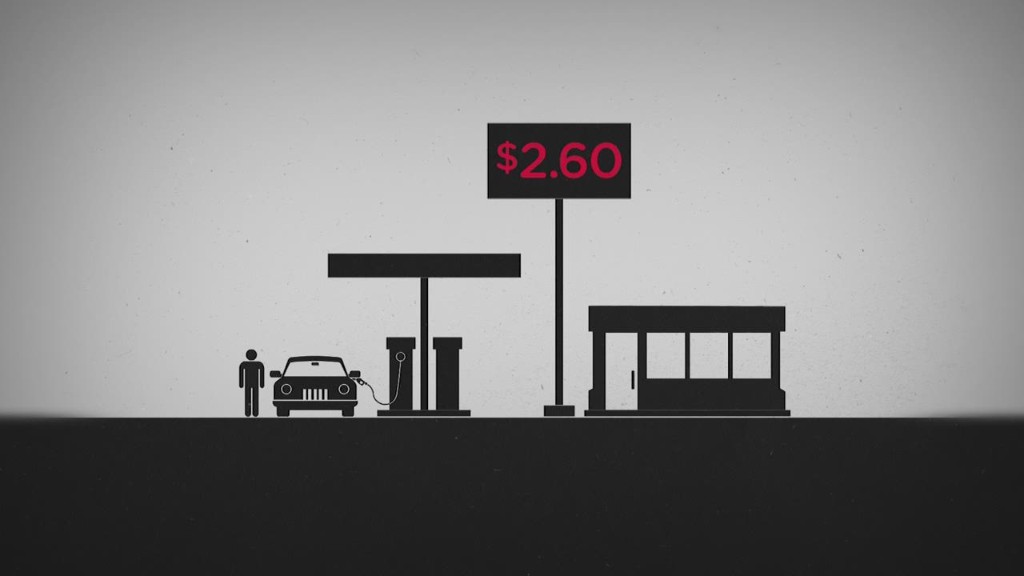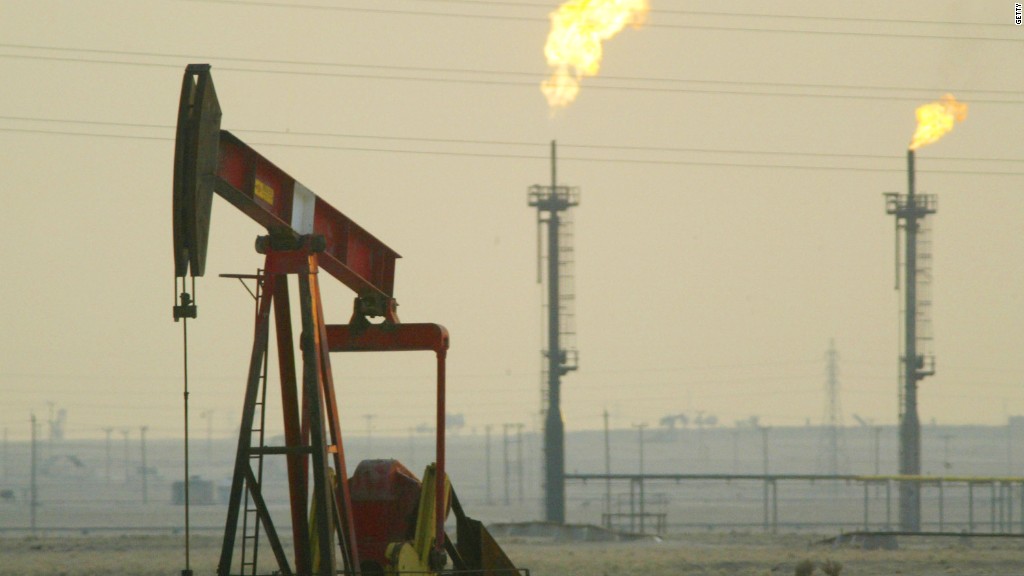
Oil was a hot topic at the global elite's annual gathering in Switzerland six years ago. It promises to take center stage again this week at the World Economic Forum in Davos.
Only this time, instead of debating how to find enough energy to power the global economy, executives and policymakers will grapple with a supply glut that is hurting producers and could fuel global deflation.
It's been a remarkable reversal of fortunes. Back in January 2009, as Davos deliberated, President Obama was taking the oath of office, promising to reduce America's dependency on foreign crude oil.
Fast forward to 2015 and U.S. shale producers are pumping nearly 4 million barrels a day, more oil than Iraq.
The U.S. energy boom is not the only factor behind the dramatic swing. Other producers, including OPEC, have been pumping away furiously, taking advantage of prices around $100 a barrel. Now the price has collapsed to below $50 as slowing global economic growth, energy efficiency and alternative sources sap demand.
Related: Falling oil's next victim: banks
Relief won't come from OPEC any time soon, either, if Saudi Arabia and its Gulf neighbors have their way -- and they usually do.
Saudi Arabia, which has long played the balancing role in world oil markets -- pumping more when demand is strong, trimming supply when it slows -- has had enough. It's time for other producers, such as the U.S. and Russia, to do their bit, it says.
"We are not going to cut, certainly Saudi Arabia is not going to cut," Saudi energy minister Ali Al-Naimi told CNN in a recent interview. The veteran minister went further, saying this was "the position we will hold forever, not [just] 2015."
As a result, the great and good that attend the annual Swiss meeting are being forced to confront what will be a painful year for oil and gas companies, and for emerging markets that depend heavily on energy exports.

The price collapse is already starting to bite, according energy services giant Baker Hughes. This month saw the steepest weekly drop in the number of U.S. oil rigs in service in nearly 25 years. Energy firms are shedding jobs.
Ahead of the Davos gathering, 300 energy executives polled at an event in Abu Dhabi said they expected prices to remain between $50-$60 this year.
Oil may eventually stabilize at a higher level of $70-$90 a barrel, but those prices could be three to five years away, according to Christophe Ruhl, head of research at Abu Dhabi Investment Authority, the giant sovereign wealth fund.
That will only happen "when global demand is strong enough to match ... increased production growth in North America, which we have not seen, and ... OPEC production stabilizes at whatever level they decide."
Related: Russia facing deep spending cuts
A great deal could happen between now and 2020 in unstable countries such as Libya or Yemen. Indeed, some experts say the hard line being followed by major Gulf producers could spark unrest in countries whose budgets depend on $100 a barrel -- including Algeria and Iran.
"If they inflict too much suffering on some of their neighbors, those fires that they light with exceptionally low prices can ultimately lead to radicalization and regional destabilization, fundamentally threatening the global energy supply," said Ali Khedury, a former U.S. military advisor in Iraq and now CEO of Dragoman Partners.
When oil averaged a record $100 or more for a record five years, the industry calculated that prices were inflated by about 15% because of the risk that the Arab Spring would disrupt exports.
Those fears have evaporated as excess supplies flooded the market, putting pressure on industry executives and world leaders who are trying to adjust to OPEC's stand to protect its market share.
Related: Complete coverage of Davos 2015
John Defterios is CNN's Emerging Markets Editor. Follow him on Twitter.


